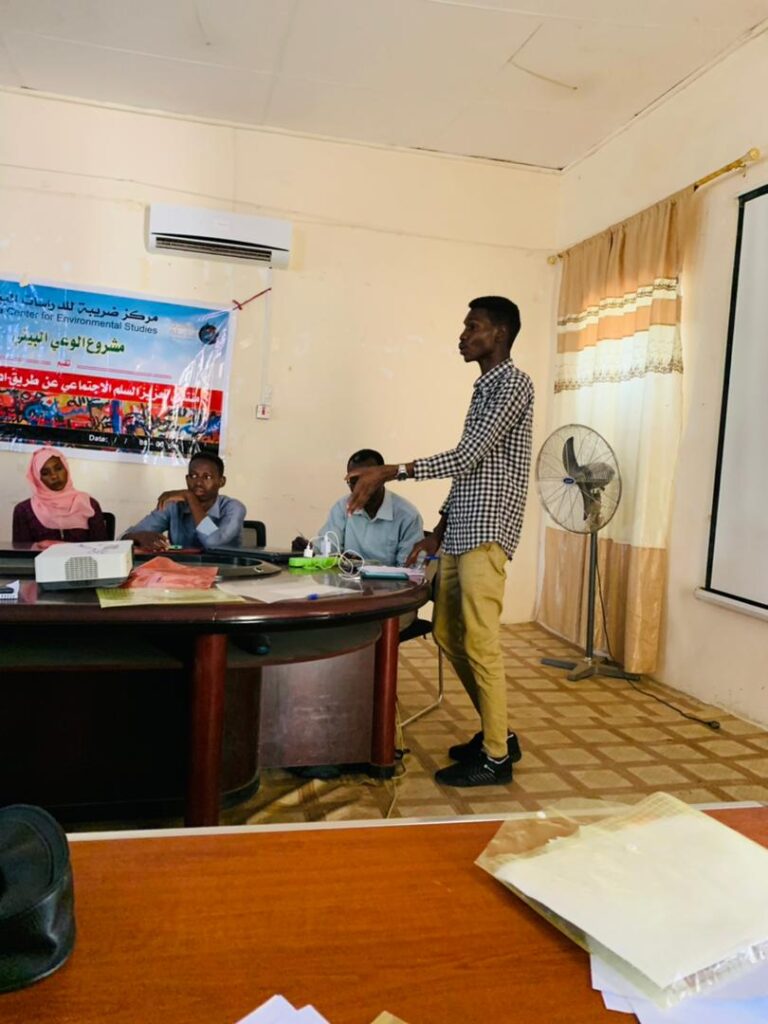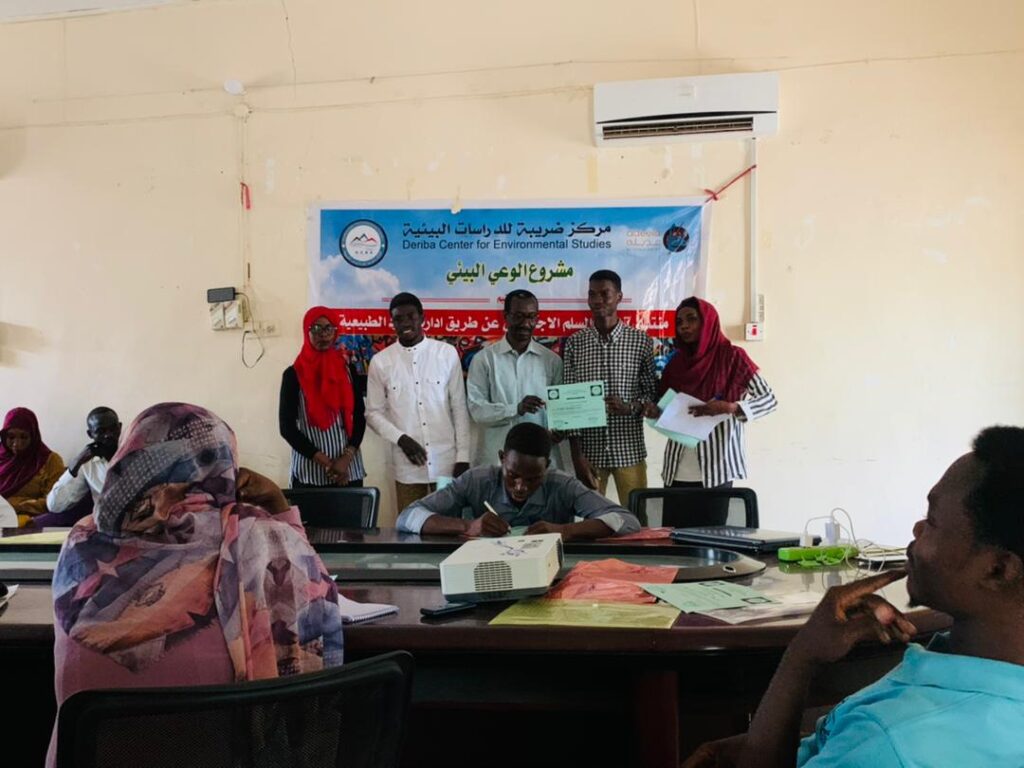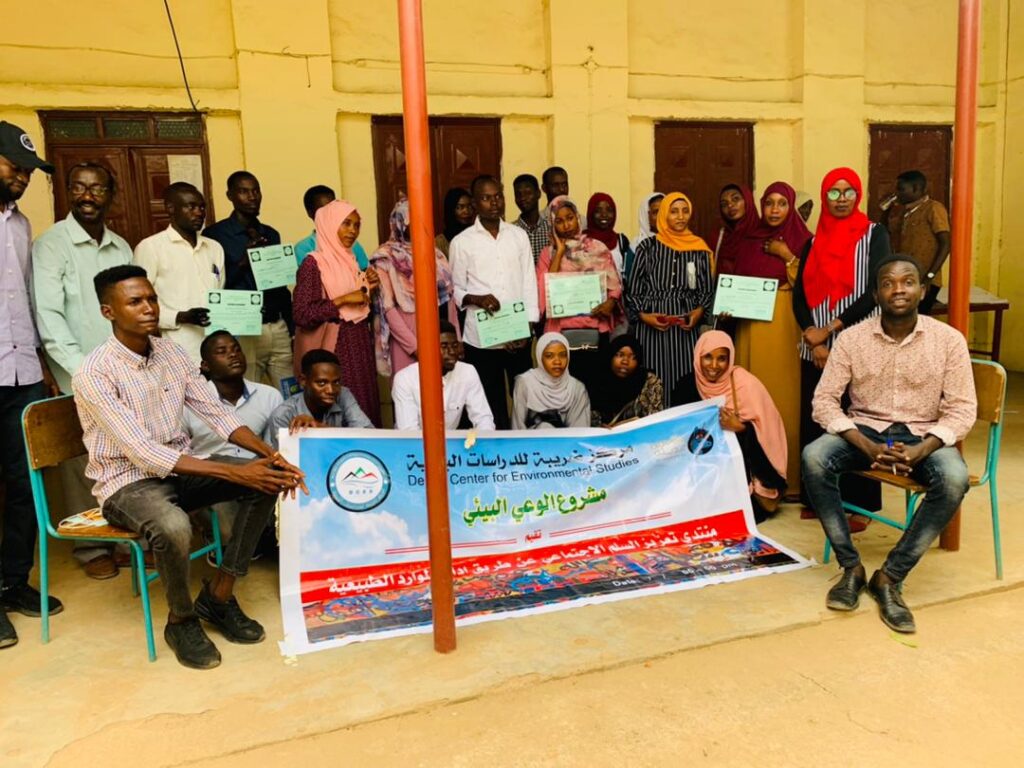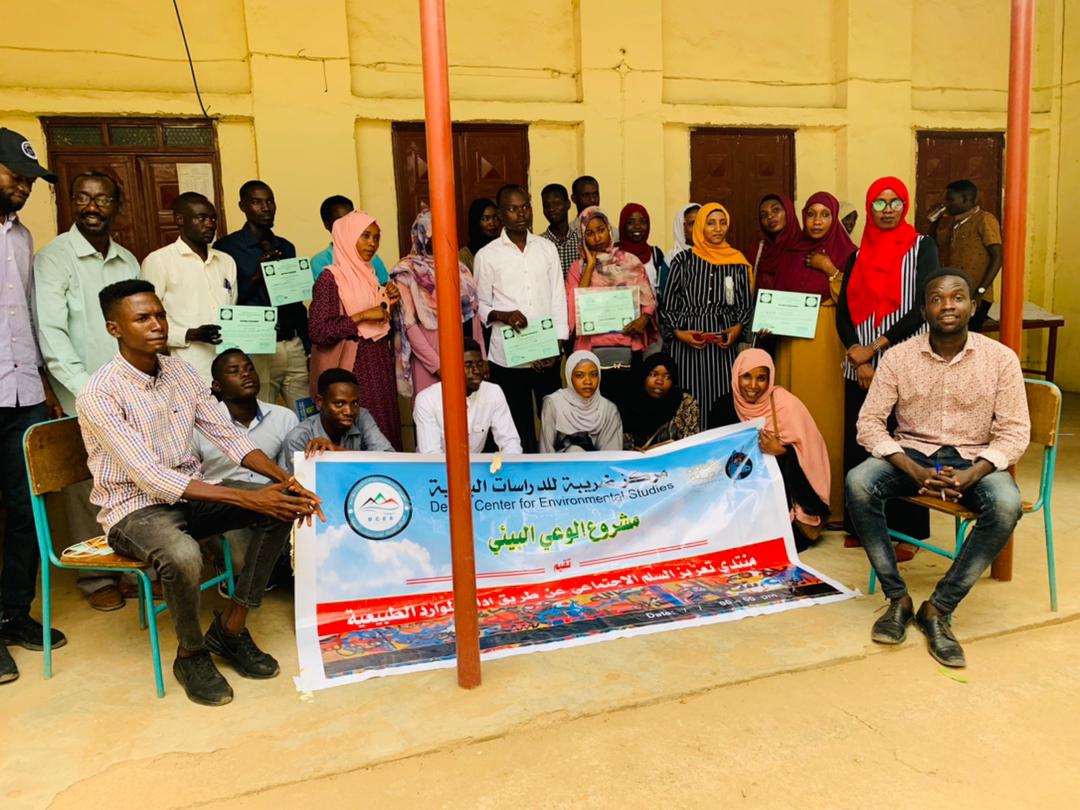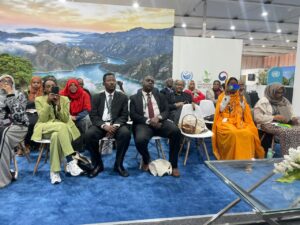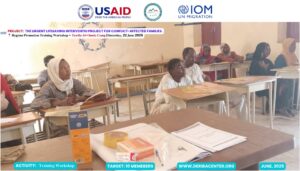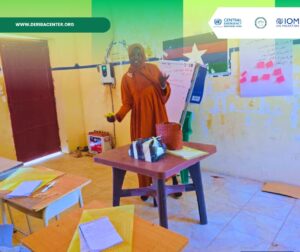Within the context of collaboration between Deriba Center for Environmental Studies and People to People Organization, in training members of national and international organizations and youth societies with the goal of increasing their capacities in the environmental awareness project. The twenty trainees (10) females and (10) males were trained to promote peace through natural resource management.
The first objective of the project was to strengthen and raise the capacities of the communities in facing crisis related to the degradation of the natural resources. By providing the basic knowledge about the definitions, categorizations related to the natural resources. The facilitator was instrumental in setting the ground for discussions about the causes of conflict over natural resources. The second objective was to Know the concept of culture of peace to create an environment of peaceful coexistence between individuals and groups in a community.
The fruitful discussion sessions culminated with the following recommendations:
- Planting specialized trees to stabilize sand dunes, as well as sowing and producing pasture seeds.
- Diversifying crop composition and expanding horticulture and income-generating projects for the communities.
- Rationalizing the consumption of live mass and supporting alternative energy projects.
- Facilitating agricultural land registration procedures, encouraging the establishment of professional associations, and activating financing funds.
- The necessity of establishing research laboratories concerned with studies of soil and agriculture, both plant and animal, water, and health, to develop the state’s natural resources.
- Enacting legislation related to all natural resources, activating laws and resolving problems related to farmer-herder relations.
- Seriously striving to make the most of rainwater by expanding water harvesting, improving sources, and introducing an integrated water management system.
- Early preparation for the agricultural season by raising awareness, providing production inputs, and introducing appropriate technologies.
- The necessity of addressing food and fodder gaps, combating poverty, reducing its effects, and reducing disasters by activating the early warning system.
- Increasing experimental fields in the regions to extract species adapted to the local environment.
Photo Gallary
